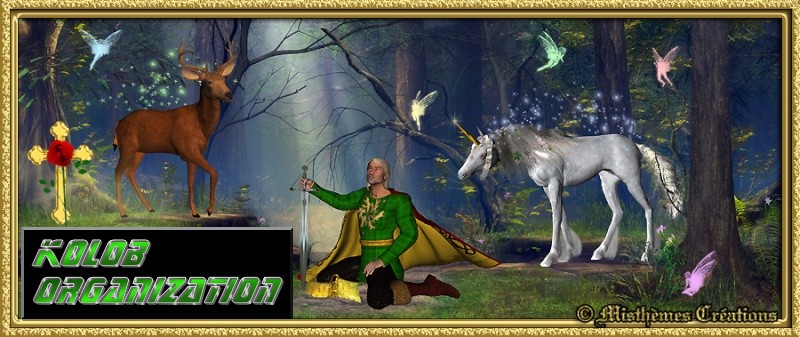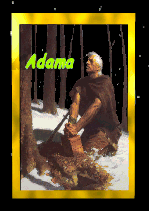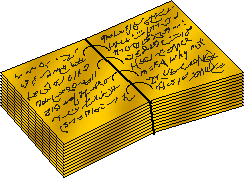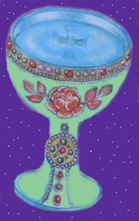
Forum encyclopédique d'histoire des Mormonismes et de la Franc-Maçonnerie & archéologie - sciences - aéronautique - paranormal - ufologie- orbs - ésotérisme - symbolisme
|
| | | Theodore Roosevelt |  |
| | | Auteur | Message |
|---|
Commandeur Adama
Magister Ordo Kolob - Admin

Nombre de messages : 8905
Age : 59
Localisation : Pays de Néphi - Mormon forest
Date d'inscription : 16/02/2007
Chevalier de Kolob - Vers la Sagesse
 A reçu la Lumière: 180 A reçu la Lumière: 180
 En quête du Vase Précieux et Elu: En quête du Vase Précieux et Elu:
    (150/200) (150/200)
 A la recherche du couple de Licornes du Jardin d'Eden: A la recherche du couple de Licornes du Jardin d'Eden:
    (7/700) (7/700)
 |  Sujet: Theodore Roosevelt Sujet: Theodore Roosevelt  Dim 24 Aoû - 13:24 Dim 24 Aoû - 13:24 | |
| 
Theodore Roosevelt ( October 27, 1858 – January 6, 1919), also known as T.R., and to the public (but never to friends and intimates) as Teddy, was the twenty-sixth President of the United States. A leader of the Republican Party and of the Progressive Movement, he was a Governor of New York and a professional historian, naturalist, explorer, author, and soldier. He is most famous for his personality: his energy, his vast range of interests and achievements, his model of masculinity, and his "cowboy" persona. Originating from a story from one of Roosevelt's hunting expeditions, Teddy bears are named after him.
As Assistant Secretary of the Navy, Roosevelt prepared for and advocated war with Spain in 1898. He organized and helped command the 1st U.S. Volunteer Cavalry Regiment — the Rough Riders — during the Spanish-American War. Returning to New York as a war hero, he was elected governor. An avid writer, his 35 books include works on outdoor life, natural history, the American frontier, political history, naval history, and his autobiography.[3]
In 1901, as Vice President, the 42-year-old Roosevelt succeeded President William McKinley after McKinley's assassination by anarchist Leon Czolgosz. He is the youngest person to become President.[4] He was a Progressive reformer who sought to move the dominant Republican Party into the Progressive camp. He distrusted wealthy businessmen and dissolved forty monopolistic corporations as a "trust buster". He was clear, however, to show he did not disagree with trusts and capitalism in principle but was only against corrupt, illegal practices. His "Square Deal" promised a fair shake for both the average citizen (through regulation of railroad rates and pure food and drugs) and the businessmen. He was the first U.S. president to call for universal health care and national health insurance.[5][6] As an outdoorsman, he promoted the conservation movement, emphasizing efficient use of natural resources. After 1906 he attacked big business and suggested the courts were biased against labor unions. In 1910, he broke with his friend and anointed successor William Howard Taft, but lost the Republican nomination to Taft and ran in the 1912 election on his own one-time Bull Moose ticket. He beat Taft in the popular vote and pulled so many Progressives out of the Republican Party that Democrat Woodrow Wilson won in 1912, and the conservative faction took control of the Republican Party for the next two decades.
Roosevelt negotiated for the U.S. to take control of the Panama Canal and its construction in 1904; he felt the Canal's completion was his most important and historically significant international achievement. He was the first American to be awarded the Nobel Prize, winning its Peace Prize in 1906, for negotiating the peace in the Russo-Japanese War.
Historian Thomas Bailey, who disagreed with Roosevelt's policies, nevertheless concluded, "Roosevelt was a great personality, a great activist, a great preacher of the moralities, a great controversialist, a great showman. He dominated his era as he dominated conversations....the masses loved him; he proved to be a great popular idol and a great vote getter."[7] His image stands alongside Washington, Jefferson and Lincoln on Mount Rushmore. Surveys of scholars have consistently ranked him from third to seventh on the list of greatest American presidents.
Childhood, education and personal life

Theodore Roosevelt at age 11
Theodore Roosevelt was born in a four-story brownstone at 28 East 20th Street[dubious – discuss], in the modern-day Gramercy section of New York City, the second of four children of Theodore Roosevelt, Sr. (1831–1877) and Mittie Bulloch (1834–1884). He had an elder sister Anna, nicknamed "Bamie" as a child and "Bye" as an adult for being always on the go, and two younger siblings—his brother Elliott (the father of Eleanor Roosevelt) and his sister Corinne (grandmother of newspaper columnists Joseph and Stewart Alsop).
The Roosevelts had been in New York since the mid-17th century and had grown with the emerging New York commerce class after the American Revolution. Roosevelt was born into a wealthy family; by the 19th century, the family had grown in wealth, power and influence from the profits of several businesses including hardware and plate-glass importing. The family was strongly Democratic in its political affiliation until the mid-1850s, then joined the new Republican Party. Theodore's father, known in the family as "Thee", was a New York City philanthropist, merchant, and partner in the family glass-importing firm Roosevelt and Son. He was a prominent supporter of Abraham Lincoln and the Union effort during the American Civil War. His mother Mittie Bulloch was a Southern belle from a slave-owning family in Savannah, Georgia and had quiet Confederate sympathies. Mittie's brother, Theodore's uncle, James Dunwoody Bulloch, was a United States Navy officer who became a Confederate admiral and naval procurement agent in Britain. Another uncle, Irvine Bulloch, was a midshipman on the Confederate raider CSS Alabama; both remained in England after the war.[8] From his grandparents' home, a young Roosevelt witnessed Abraham Lincoln's funeral procession in New York.
Sickly and asthmatic as a youngster, Roosevelt had to sleep propped up in bed or slouching in a chair during much of his early childhood, and had frequent ailments. Despite his illnesses, he was a hyperactive and often mischievous young man. His lifelong interest in zoology was formed at age seven upon seeing a dead seal at a local market. After obtaining the seal's head, the young Roosevelt and two of his cousins formed what they called the "Roosevelt Museum of Natural History". Learning the rudiments of taxidermy, he filled his makeshift museum with many animals that he killed or caught, studied, and prepared for display. At age nine, he codified his observation of insects with a paper titled "The Natural History of Insects".[9]
To combat his poor physical condition, his father compelled the young Roosevelt to take up exercise. To deal with bullies, Roosevelt started boxing lessons.[10] Two trips abroad had a permanent impact: family tours of Europe in 1869 and 1870, and of the Middle East 1872 to 1873.
Theodore Sr. had a tremendous influence on his son. Of him Roosevelt wrote, "My father, Theodore Roosevelt, was the best man I ever knew. He combined strength and courage with gentleness, tenderness, and great unselfishness. He would not tolerate in us children selfishness or cruelty, idleness, cowardice, or untruthfulness."[11] Roosevelt's sister[clarify] later wrote, "He told me frequently that he never took any serious step or made any vital decision for his country without thinking first what position his father would have taken."[12]
Young "Teedie", as he was nicknamed as a child, (the nickname "Teddy" was from his first wife, Alice Hathaway Lee, and he later harbored an intense dislike for it) was mostly home schooled by tutors and his parents. A leading biographer says: "The most obvious drawback to the home schooling Roosevelt received was uneven coverage of the various areas of human knowledge." He was solid in geography (thanks to his careful observations on all his travels) and very well read in history, strong in biology, French and German, but deficient in mathematics, Latin and Greek.[13] He matriculated at Harvard College in 1876, graduating magna cum laude. His father's death in 1878 was a tremendous blow, but Roosevelt redoubled his activities. He did well in science, philosophy and rhetoric courses but fared poorly in Latin and Greek. He studied biology with great interest and indeed was already an accomplished naturalist and published ornithologist. He had a photographic memory and developed a life-long habit of devouring books, memorizing every detail.[14] He was an eloquent conversationalist who, throughout his life, sought out the company of the smartest people. He could multitask in extraordinary fashion, dictating letters to one secretary and memoranda to another, while browsing through a new book.
While at Harvard, Roosevelt was active in rowing, boxing and the Alpha Delta Phi fraternity. He also edited a student magazine. He was runner-up in the Harvard boxing championship, losing to C.S. Hanks. Upon graduating from Harvard, he underwent a physical examination and his doctor advised him that due to serious heart problems, he should find a desk job and avoid strenuous activity. He chose to embrace strenuous life instead.[15]
He graduated Phi Beta Kappa and magna cum laude (22nd of 177) from Harvard in 1880, and entered Columbia Law School. When offered a chance to run for New York Assemblyman in 1881, he dropped out of law school to pursue his new goal of entering public life.[16]

Roosevelt as NY State Assemblyman, 1883 photo
Roosevelt was a Republican activist during his years in the Assembly, writing more bills than any other New York state legislator. Already a major player in state politics, he attended the Republican National Convention in 1884 and fought alongside the Mugwump reformers; they lost to the Stalwart faction that nominated James G. Blaine. Refusing to join other Mugwumps in supporting Democrat Grover Cleveland, the Democratic nominee, he debated with his friend Henry Cabot Lodge the plusses and minuses of staying loyal or straying. When asked by a reporter whether he would support Blaine, he replied, "That question I decline to answer. It is a subject I do not care to talk about."[17] Upon leaving the convention, he complained "off the record" to a reporter about Blaine's nomination. But, in probably the most crucial moment of his young political career, he resisted the very instinct to bolt from the Party that would overwhelm his political sense in 1912. In an account of the Convention, another reporter quoted him as saying that he would give "hearty support to any decent Democrat." He would later take great (and to some historical critics such as Henry Pringle, rather disingenuous) pains to distance himself from his own earlier comment, indicating that while he made it, it had not been made "for publication."[18]
First marriage
Alice Hathaway Lee (July 29, 1861 in Chestnut Hill, Massachusetts – February 14, 1884 in Manhattan, New York) was the first wife of Theodore Roosevelt and mother of their only child together, Alice Lee Roosevelt. Alice Roosevelt died of an undiagnosed case of Bright's disease two days after Alice Lee was born. Theodore Roosevelt's mother, Mittie, died of typhoid fever in the same house on the same day. After the simultaneous deaths of his mother and wife, Roosevelt left his daughter in the care of his sister in New York and moved out to Dakota Territory.
| |
|   | | Commandeur Adama
Magister Ordo Kolob - Admin

Nombre de messages : 8905
Age : 59
Localisation : Pays de Néphi - Mormon forest
Date d'inscription : 16/02/2007
Chevalier de Kolob - Vers la Sagesse
 A reçu la Lumière: 180 A reçu la Lumière: 180
 En quête du Vase Précieux et Elu: En quête du Vase Précieux et Elu:
    (150/200) (150/200)
 A la recherche du couple de Licornes du Jardin d'Eden: A la recherche du couple de Licornes du Jardin d'Eden:
    (7/700) (7/700)
 |  Sujet: Re: Theodore Roosevelt Sujet: Re: Theodore Roosevelt  Dim 24 Aoû - 13:26 Dim 24 Aoû - 13:26 | |
| Life in Badlands

Theodore Roosevelt as Badlands hunter in 1885. New York studio photo.
Roosevelt built a second ranch, which he named Elk Horn, thirty-five miles (56 km) north of the boomtown of Medora, North Dakota. On the banks of the Little Missouri, Roosevelt learned to ride, rope, and hunt. He rebuilt his life and began writing about frontier life for Eastern magazines. As a deputy sheriff, Roosevelt hunted down three outlaws who stole his river boat and were escaping north with it up the Little Missouri. Capturing them, he decided against hanging them, and sending his foreman back by boat, he took the thieves back overland for trial in Dickinson, guarding them forty hours without sleep and reading Tolstoy to keep himself awake. When he ran out of his own books, he read a dime store western that one of the thieves was carrying. ."[19] While working on a tough project aimed at hunting down a group of relentless horse thieves, Roosevelt came across the famous Deadwood Sheriff, Seth Bullock. The two would remain friends for life. [20]
After the uniquely severe U.S. winter of 1886-1887 wiped out his herd of cattle and his $60,000 investment (together with those of his competitors), he returned to the East, where in 1885 he had built Sagamore Hill in Oyster Bay, New York. It would be his home and estate until his death. Roosevelt ran as the Republican candidate for mayor of New York City in 1886 as "The Cowboy of the Dakotas"; he came in third.
Second marriage
Following the election, he went to London in 1886 and married his childhood sweetheart, Edith Kermit Carow.[21] They honeymooned in Europe, and Roosevelt led a party to the summit of Mont Blanc, a feat which resulted in his induction into the British Royal Society.[22] They had five children: Theodore Jr., Kermit, Ethel Carow, Archibald Bulloch "Archie", and Quentin.[23]
Historian
Roosevelt's definitive 1882 book The Naval War of 1812 was standard history for two generations. Roosevelt undertook extensive and original research, computing British and American man-of-war broadside throw weights.[24] However, his biographies of Thomas Hart Benton (1887) and Gouverneur Morris (1888) are considered hastily-written and superficial.[25] His four-volume history of the frontier titled The Winning of the West (1889–1896) had a notable impact on historiography, as it presented a highly original version of the frontier thesis elaborated upon by his friend Frederick Jackson Turner in 1893.
Roosevelt argued the frontier conditions created a new race: the American people that replaced the "scattered savage tribes, whose life was but a few degrees less meaningless, squalid, and ferocious than that of the wild beasts with whom they held joint ownership." He believed, "the conquest and settlement by the whites of the Indian lands was necessary to the greatness of the race and to the well-being of civilized mankind." His many articles in upscale magazines provided a much-needed income. He was later chosen president of the American Historical Association.
Views on race
In The Winning of the West (1889–1896), Roosevelt's frontier thesis stressed a racial struggle between "civilization" (white, especially Germanic peoples) and supposed savagery (of people of color). Excerpts:
"The settler and pioneer have at bottom had justice on their side; this great continent could not have been kept as nothing but a game preserve for squalid savages."
"The most ultimately righteous of all wars is a war with savages."
"American and Indian, Boer and Zulu, Cossack and Tartar, New Zealander and Maori, — in each case the victor, horrible though many of his deeds are, has laid deep the foundations for the future greatness of a mighty people."
"..it is of incalculable importance that America, Australia, and Siberia should pass out of the hands of their red, black, and yellow aboriginal owners, and become the heritage of the dominant world races."
"The world would have halted had it not been for the Teutonic conquests in alien lands; but the victories of Moslem over Christian have always proved a curse in the end. Nothing but sheer evil has come from the victories of Turk and Tartar."
In Brownsville, Texas, racial tensions were high between white townsfolk and black infantrymen stationed at Fort Brown. Two white townspeople were murdered and the townsfolk blamed the infantrymen. Roosevelt immediately dishonorably discharged all soldiers in the three all black companies (that fought alongside Roosevelt in the Spanish American War) due to their "conspiracy of silence." Further investigations in the 1970s found they were not involved and they were pardoned by President Nixon.
Some notable events in Theodore Roosevelt's life include:
Nominating the successful bid to install John Roy Lynch, an African American delegate from Mississippi, as the Chairman of the 1884 Republican National Convention.
Inviting African American reformer Booker T. Washington to a dinner at the White House, an action which caused outrage among many newspapers in the South, which objected to "mixing of the races on social occasions."
Appointed the Collector of the Port of Charleston post to an African-American, Dr. William D. Crum, and when he was urged to withdraw the appointment, wrote the following:
I do not intend to appoint any unfit man to office. So far as I legitimately can, I shall always endeavor to pay regard to the wishes and feelings of the people of each locality; but I cannot consent to take the position that the doorway of hope - the door of opportunity - is to be shut upon any man, no matter how worthy, purely upon the grounds of race or color. Such an attitude would, according to my contentions, be fundamentally wrong.
Defended the Postmaster of Indianola, Mississippi, Minnie D. Cox. She was an African-American, and on that basis alone she was threatened with mob violence and was forced to resign. Roosevelt took action by closing the post office there, ignoring her resignation, and still paying her what she was due as if nothing had happened.[26]
| |
|   | | Commandeur Adama
Magister Ordo Kolob - Admin

Nombre de messages : 8905
Age : 59
Localisation : Pays de Néphi - Mormon forest
Date d'inscription : 16/02/2007
Chevalier de Kolob - Vers la Sagesse
 A reçu la Lumière: 180 A reçu la Lumière: 180
 En quête du Vase Précieux et Elu: En quête du Vase Précieux et Elu:
    (150/200) (150/200)
 A la recherche du couple de Licornes du Jardin d'Eden: A la recherche du couple de Licornes du Jardin d'Eden:
    (7/700) (7/700)
 |  Sujet: Re: Theodore Roosevelt Sujet: Re: Theodore Roosevelt  Dim 24 Aoû - 13:30 Dim 24 Aoû - 13:30 | |
| Return to public life

New York City Police Commissioner 1896
In the 1888 presidential election, Roosevelt campaigned in the Midwest for Benjamin Harrison. President Harrison appointed Roosevelt to the United States Civil Service Commission, where he served until 1895.[27] In his term, he vigorously fought the spoilsmen and demanded the enforcement of civil service laws. In spite of Roosevelt's support for Harrison's reelection bid in the presidential election of 1892, the eventual winner, Grover Cleveland (a Bourbon Democrat), reappointed him to the same post.[citation needed]
Roosevelt became president of the board of New York City Police Commissioners in 1895. During the two years he held this post, Roosevelt radically reformed the police department. The police force was reputed as one of the most corrupt in America. The NYPD's history division records that Roosevelt was "an iron-willed leader of unimpeachable honesty, (who) brought a reforming zeal to the New York City Police Commission in 1895."[28] Roosevelt and his fellow commissioners established new disciplinary rules, created a bicycle squad to police New York's traffic problems and standardized the use of pistols by officers.[29] Roosevelt implemented regular inspections of firearms, annual physical exams, appointed 1,600 new recruits based on their physical and mental qualifications and not on political affiliation, established meritorious service medals, and shut down corrupt police hostelries. During his tenure, a Municipal Lodging House was established by the Board of Charities, and Roosevelt required officers to register with the Board. He also had telephones installed in station houses. Always an energetic man, he made a habit of walking officers' beats late at night and early in the morning to make sure they were on duty.[30] He became caught up in public disagreements with commissioner Parker, who sought to negate or delay the promotion of many officers put forward by Roosevelt.

Assistant Secretary of the Navy Roosevelt (front center) at the Naval War College, c. 1897
Assistant Secretary of the Navy
Assistant Secretary of the Navy Roosevelt (front center) at the Naval War College, c. 1897Roosevelt had always been fascinated by naval history. Urged by Roosevelt's close friend, Congressman Henry Cabot Lodge, President William McKinley appointed a delighted Roosevelt to the post of Assistant Secretary of the Navy in 1897. (Because of the inactivity of Secretary of the Navy John D. Long at the time, this basically gave Roosevelt control over the department.) Roosevelt was instrumental in preparing the Navy for the Spanish-American War[31] and was an enthusiastic proponent of testing the U.S. military in battle, at one point stating "I should welcome almost any war, for I think this country needs one".[32][33]
War in Cuba

Colonel Roosevelt and the Rough Riders after capturing San Juan Hill
Upon the 1898 Declaration of War launching the Spanish-American War, Roosevelt resigned from the Navy Department. With the aid of U.S. Army Colonel Leonard Wood, Roosevelt found volunteers from cowboys from the Western territories to Ivy League friends from New York, forming the First U.S. Volunteer Cavalry Regiment. The newspapers called them the "Rough Riders."
| |
|   | | Commandeur Adama
Magister Ordo Kolob - Admin

Nombre de messages : 8905
Age : 59
Localisation : Pays de Néphi - Mormon forest
Date d'inscription : 16/02/2007
Chevalier de Kolob - Vers la Sagesse
 A reçu la Lumière: 180 A reçu la Lumière: 180
 En quête du Vase Précieux et Elu: En quête du Vase Précieux et Elu:
    (150/200) (150/200)
 A la recherche du couple de Licornes du Jardin d'Eden: A la recherche du couple de Licornes du Jardin d'Eden:
    (7/700) (7/700)
 |  Sujet: Re: Theodore Roosevelt Sujet: Re: Theodore Roosevelt  Dim 24 Aoû - 13:33 Dim 24 Aoû - 13:33 | |
| 
Originally Roosevelt held the rank of Lieutenant Colonel and served under Colonel Wood. In Roosevelt's own account, The Rough Riders, "after General Young was struck down with the fever, and Wood took charge of the brigade. This left me in command of the regiment, of which I was very glad, for such experience as we had had is a quick teacher."[34] Accordingly, Wood was promoted to Brigadier General of Volunteer Forces, Roosevelt was promoted to Colonel and given command of the Regiment.. [35]
Under his leadership, the Rough Riders became famous for dual charges up Kettle Hill and San Juan Hill on July 1, 1898 (the battle was named after the latter "hill," which was the shoulder of a ridge known as San Juan Heights). Out of all the Rough Riders, Roosevelt was the only one with a horse, and used it to ride back and forth between rifle pits at the forefront of the advance up Kettle Hill; an advance which he urged in absence of any orders from superiors. However, he was forced to walk up the last part of Kettle Hill on foot, due to barbed wire entanglement and after his horse, Little Texas, became tired.
For his actions, Roosevelt was nominated for the Medal of Honor which was subsequently disapproved. It has been widely speculated this disapproval was because of Roosevelt's outspoken comments on the handling of the war. In September 1997, Congressman Rick Lazio, representing the 2nd District of New York, sent two award recommendations to the U.S. Army Military Awards Branch. These recommendations, addressed to Brigadier General Earl Simms, the Army's Adjutant General, and Master Sergeant Gary Soots, Chief of Authorizations, would prove successful in garnering the much sought after award.[36] Roosevelt was posthumously awarded the Medal of Honor in 2001 for his actions.[37] He was the first and, as of 2008, the only President of the United States to be awarded with America's highest military honor, and the only person in history to receive both his nation's highest honor for military valor and the world's foremost prize for peace.[38] (His oldest son Theodore Roosevelt, Jr. would also posthumously be awarded the Medal of Honor for his actions at Normandy on June 6, 1944.[39])

Chicago newspaper sees cowboy-TR campaigning for governor
After his return to civilian life, Roosevelt preferred to be known as "Colonel Roosevelt" or "The Colonel." As a moniker, "Teddy" remained much more popular with the general public; however, political friends and others working closely with Roosevelt customarily addressed him by his rank.
Governor and Vice President
On leaving the Army, Roosevelt was elected governor of New York in 1898 as a Republican. He made such a concerted effort to root out corruption and "machine politics" that Republican boss Thomas Collier Platt forced him on McKinley as a running mate in the 1900 election, against the wishes of McKinley's manager, Senator Mark Hanna. Roosevelt was a powerful campaign asset for the Republican ticket, which defeated William Jennings Bryan in a landslide based on restoration of prosperity at home and a successful war and new prestige abroad. Bryan stumped for Free Silver again, but McKinley's promise of prosperity through the gold standard, high tariffs, and the restoration of business confidence enlarged his margin of victory. Bryan had strongly supported the war against Spain, but denounced the annexation of the Philippines as imperialism that would spoil America's innocence. Roosevelt countered with many speeches that argued it was best for the Filipinos to have stability, and the Americans to have a proud place in the world. Roosevelt's six months as Vice President (March to September 1901) were uneventful.[40] On September 2, 1901, at the Minnesota State Fair, Roosevelt first used in a public speech a saying that would later be universally associated with him: "Speak softly and carry a big stick, and you will go far."
| |
|   | | Commandeur Adama
Magister Ordo Kolob - Admin

Nombre de messages : 8905
Age : 59
Localisation : Pays de Néphi - Mormon forest
Date d'inscription : 16/02/2007
Chevalier de Kolob - Vers la Sagesse
 A reçu la Lumière: 180 A reçu la Lumière: 180
 En quête du Vase Précieux et Elu: En quête du Vase Précieux et Elu:
    (150/200) (150/200)
 A la recherche du couple de Licornes du Jardin d'Eden: A la recherche du couple de Licornes du Jardin d'Eden:
    (7/700) (7/700)
 |  Sujet: Re: Theodore Roosevelt Sujet: Re: Theodore Roosevelt  Dim 24 Aoû - 13:35 Dim 24 Aoû - 13:35 | |
| Presidency 1901–1909

Nashville Tennessee News sketch of Theodore Roosevelt inauguration minus the customary Bible. Inauguration photos were not allowed after a rival photographer unceremoniously knocked down another's camera.
At the Pan-American Exposition in Buffalo, New York, on September 6, 1901, President McKinley was shot by Leon Czolgosz (Zol-gash). Roosevelt had been mountain climbing with his family when he heard the news. He rushed to Buffalo, but after being assured the President would recover, he went on a planned family camping and hiking trip to Mount Marcy. In the mountains, a runner notified him McKinley was on his death bed. Roosevelt pondered with his wife, Edith, how best to respond, not wanting to show up in Buffalo and wait on McKinley's death. Roosevelt was rushed by a series of stagecoaches to North Creek train station. At the station, Roosevelt was handed a telegram that said President McKinley died at 2:30 AM that morning. Roosevelt continued by train from North Creek to Buffalo. He arrived in Buffalo later that day, accepting an invitation to stay at the home of Ansley Wilcox, a prominent lawyer and friend since the early 1880s when they had both worked closely with New York State Governor Grover Cleveland on civil service reform.
Roosevelt took the oath of office in the Ansley Wilcox House at Buffalo, borrowing Wilcox's morning coat. Roosevelt did not swear on a Bible,[41] in contrast to the usual tradition of US presidents.[42] Expressing the fears of many old-line Republicans, Mark Hanna lamented "that damned cowboy is president now."[43] Roosevelt was the youngest person to assume the presidency, at 42, and he promised to continue McKinley's cabinet and his basic policies. Roosevelt did so, but after winning election in 1904, he moved to the political left, stretching his ties to the Republican Party's conservative leaders.[44]
] Anthracite coal strike of 1902
Main article: Coal Strike of 1902
A national emergency was averted in 1902 when Roosevelt found a compromise to the anthracite coal strike by the United Mine Workers of America that threatened the heating supplies of most urban homes. Roosevelt called the mine owners and the labor leaders to the White House and negotiated a compromise. Miners were on strike for 163 days before it ended; they were granted a 10% pay increase and a 9-hour day (from the previous 10 hours), but the union was not officially recognized, and the price of coal went up.[45]
Reference : http://en.wikipedia.org/wiki/Theodore_Roosevelt | |
|   | | Contenu sponsorisé
 |  Sujet: Re: Theodore Roosevelt Sujet: Re: Theodore Roosevelt  | |
| |
|   | | | | Theodore Roosevelt |  |
|
| | Permission de ce forum: | Vous ne pouvez pas répondre aux sujets dans ce forum
| |
| |
| |
|

